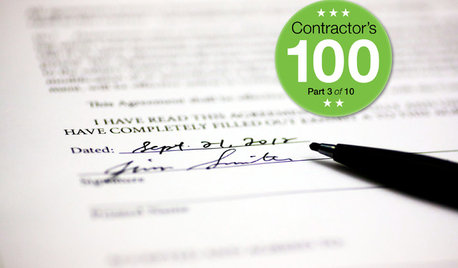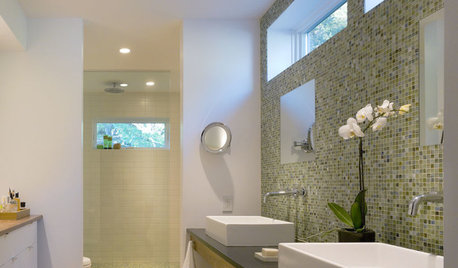budgets and contracts
plants4
16 years ago
Related Stories

CONTRACTOR TIPSWhat to Look for in a Contractor's Contract
10 basic ingredients for a contract will help pave the way to remodel happiness
Full Story
BUDGETING YOUR PROJECTConstruction Contracts: What to Know About Estimates vs. Bids
Understanding how contractors bill for services can help you keep costs down and your project on track
Full Story
BUDGETING YOUR PROJECTConstruction Contracts: What Are General Conditions?
Here’s what you should know about these behind-the-scenes costs and why your contractor bills for them
Full Story
WORKING WITH PROSConstruction Contracts: How to Understand What You Are Buying
Learn how plans, scope of work and specifications define the work to be completed
Full Story
DESIGN PRACTICEContracting Practice: Marketing Your Business
To keep those projects rolling in, combine old-school techniques with the latest in high-tech networking
Full Story
KITCHEN DESIGNKitchen Remodel Costs: 3 Budgets, 3 Kitchens
What you can expect from a kitchen remodel with a budget from $20,000 to $100,000
Full Story
REMODELING GUIDESWhat to Know About Budgeting for Your Home Remodel
Plan early and be realistic to pull off a home construction project smoothly
Full Story
BUDGETING YOUR PROJECTHouzz Call: What Did Your Kitchen Renovation Teach You About Budgeting?
Cost is often the biggest shocker in a home renovation project. Share your wisdom to help your fellow Houzzers
Full Story
DECORATING GUIDESBudget Decorating: How to Decorate Smart and Slow
To make the most of your decorating dollar, forgo the disposable stuff, think vintage and free first and give yourself a splurge
Full Story
REMODELING GUIDESBreakthrough Budgeting Info: The Houzz Real Cost Finder Is Here
Get remodeling and product prices by project and U.S. city, with our easy-to-use interactive tool
Full Story









User
Jon1270
Related Professionals
Vineyard Kitchen & Bathroom Designers · Cocoa Beach Kitchen & Bathroom Remodelers · Hunters Creek Kitchen & Bathroom Remodelers · Albany General Contractors · Avon Lake General Contractors · Bay City General Contractors · Country Club Hills General Contractors · Longview General Contractors · Martinsville General Contractors · Merrimack General Contractors · North Smithfield General Contractors · Park Forest General Contractors · Sun Prairie General Contractors · Troy General Contractors · Security-Widefield General Contractorsplants4Original Author
ron6519
plants4Original Author
hendricus
caligirl_cottage
Jon1270
mightyanvil
caligirl_cottage
jegr
live_wire_oak
mightyanvil
kec01
homey_bird
mightyanvil
mightyanvil
caligirl_cottage
mightyanvil
mightyanvil
mightyanvil
plants4Original Author
mightyanvil
skia_d
plants4Original Author
caligirl_cottage
jcgreen1000